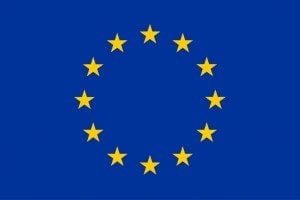22 April 2024
The MARIO programme finds firm feet as MRG rolls into its second year. The MARIO (Minorities, Accountability, Rights, Independence and Organizational Development) programme works to cultivate a supportive environment for grassroots civil society organizations in EU countries operating in challenging environments. It’s all about providing the organizational and financial support to help grassroots organizations continue and grow their vital work in the face of shrinking civic space, weaponized bureaucracy, harassment and growing nationalism.
This year, as before, our annual Central Training brought all 30 of our new organizational partners into one room to meet, exchange, learn and collaborate. The event kicks off MARIO’s second year; over the next 12 months, we will continue to support these organizations to deliver their projects across Europe and ensure they can continue to play their vital role in society.

The diversity continues! This year, our partners again represent numerous countries – Bulgaria, Croatia, Hungary, Lithuania, Poland, and Slovakia – and work, once again, with a multitude of communities. We have partners working with Pomaks, Ramuva, Roma, Muslim communities, Jewish communities, Tatars, the Vietnamese community of Slovakia, Kazakh migrants, and many working across intersectional identities including people with disabilities and the LGBTQIA+ community.
With six interpreters at the event, it was no small feat to pull off hosting an event as dynamic and engaging as this. Nonetheless, our partners adeptly navigated the complexities of networking, communication and collaboration across linguistic, geographical, and communal boundaries. Many expressed appreciation for the inclusive atmosphere and the recognition that no issue exists in isolation; rather, all are interconnected, and most importantly, there is solidarity to be found in the seemingly unlikeliest of places.

Our partners also dedicated substantial time familiarizing themselves with the operational mechanisms of European Union institutions and how to leverage these structures to advance their long-term objectives. This training was facilitated by our MARIO programme partners, PILNet, a non-governmental organisation that engages lawyers to provide free legal assistance to civil society organizations and social enterprises. Our partners learnt about the ways in which they can access the pro-bono legal aid available to them under the MARIO programme; about the court systems and legal mechanisms operating under EU systems; and about the legislative processes of different EU institutions.

In addition, all participants were afforded the opportunity to propose topics for ‘brain dates’, small group conversations between participants and MRG’s MARIO team. From basic definitions to big ideas, the purpose is to exchange knowledge and mobilize people around a common question. This resulted in a plethora of stimulating discussions, with exchanges delving into themes including the dynamics of solidarity, the quality of life for individuals with disabilities and how to integrate EU values effectively within the participants’ respective fields.

The culmination of the three-day event featured two enriching walking tours exploring neighbourhoods in Budapest significant to minority communities — the 8th District for a Roma history tour and the 7th District for a Jewish history tour. On the final day everyone took a moment to express how glad they were they could attend, meet each other and take inspiration back to their work with them. We were once again delighted to witness the networking and collaboration taking shape before our eyes, and eagerly anticipate how the participants’ projects unfold in the year ahead.

Gulmira Mussayeva from the Lithuanian Kazakh Community Nursaulė (Lithuania) deep in discussion with Nejra Kadić Meškić, MRG Croatia Liaison officer, and Jurgita Ribinskaite-Glatzer of Rykantai Post (Lithuania). Credit: Emília Lola Eördögh.
 This content is a guest post from one of our partner organizations about their work as part of our ‘Minorities, Accountability, Rights, Independence and Organisational Development’ (MARIO) programme. Learn more >
This content is a guest post from one of our partner organizations about their work as part of our ‘Minorities, Accountability, Rights, Independence and Organisational Development’ (MARIO) programme. Learn more >
 MARIO is funded by the Citizens, Equality, Rights and Values Programme (2021-27) of the European Union (ref: 101091387).
MARIO is funded by the Citizens, Equality, Rights and Values Programme (2021-27) of the European Union (ref: 101091387).
Author(s)
Ifra Asad
Grants Manager
Minority Rights Group
Posted on April 24, 2024
0